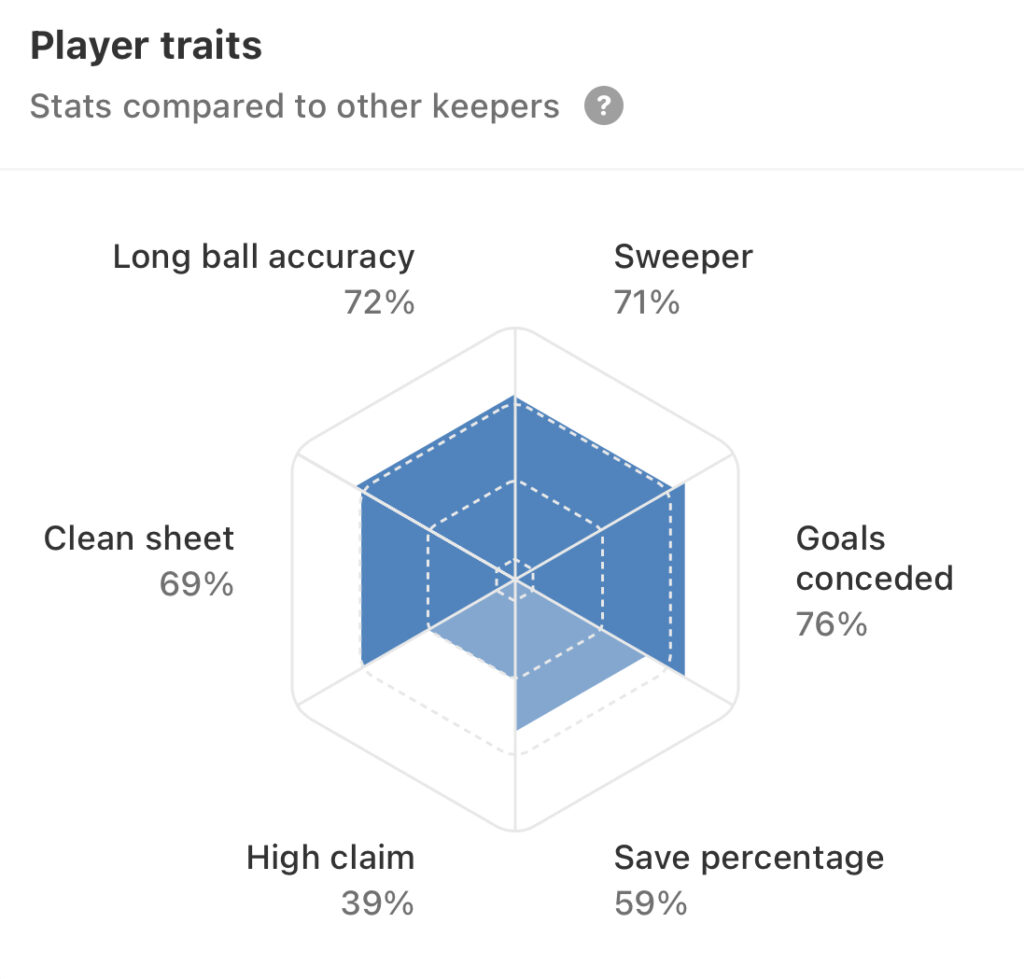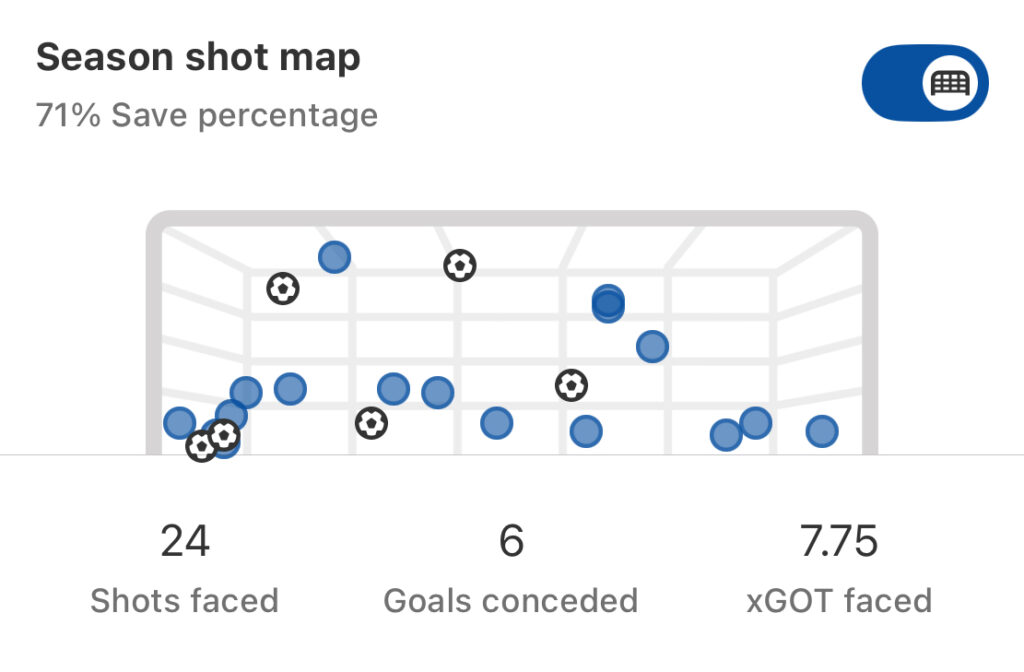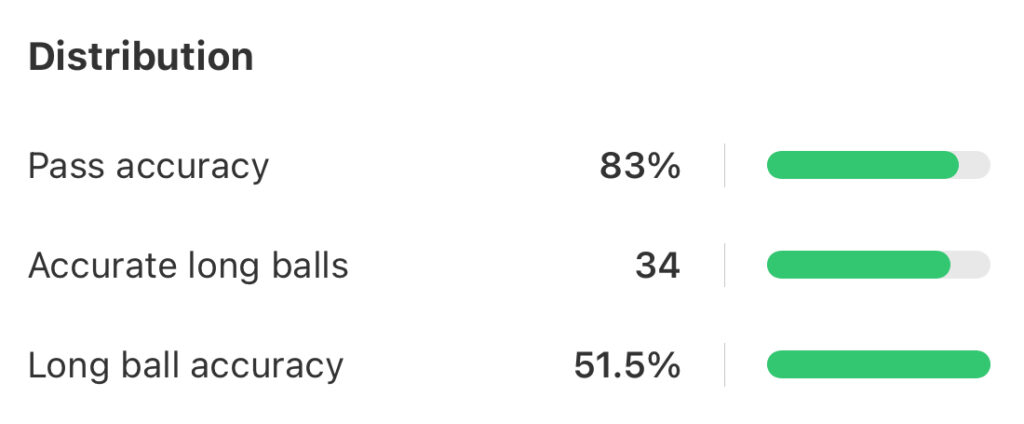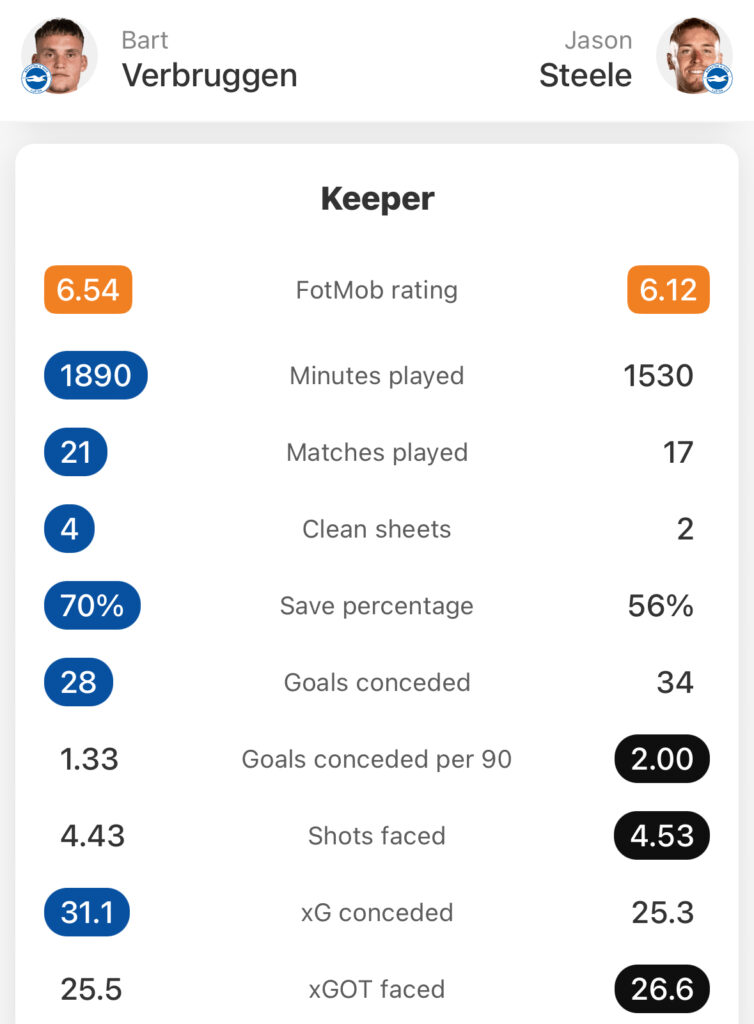Bart Verbruggen’s performances at EURO 2024 suggest he should already be Brighton’s undisputed No. 1
Cast your minds back to the start of the World Cup in 2022 and the starting lineup for Netherlands. You didn’t need to go far to find a surprise name on the teamsheet: right at the top, in fact, with Andries Noppert in goal, winning his debut cap in the first group stage game. A great reward, but it showcased a problem area for the Oranje: they’d struggled for consistency and quality in goal for some time and he hasn’t won another cap since.
This time around they went for 21-year-old Bart Verbruggen, getting the talented 21-year-old some early tournament experience in the expectation he’ll be around for the long haul. So how did he get on at Euro 2024?
It’s of course important to place context: goalkeeping is such a tough position to analyse by numbers alone – and even by eye-test it can be a hugely subjective role. Should the No.1 be a tremendous shot-stopper first and foremost, or be an organiser of his defence? Must he dominate his area, be great with his feet, indomitable in the air?

The very best are all of the above perhaps, but even world-class performers come in different styles: Jan Oblak to Alisson Becker, for example, are worlds apart stylistically yet both reign supreme at the top of the elite game.
For Verbruggen, he naturally has a way to go to get to that level, but it was a relatively promising tournament nonetheless.
With the Dutch going to the semi-finals, he played six games, conceding seven along the way (own goals not shown on shot map below) – not a great rate, but they were open initially and struggling for a midfield setup after injuries and absences, none of which helps team cohesion and in turn the ‘keeper.

Verbruggen clocked out with a 70.8% save rate: ranking 15th in the tournament by that metric, so below where he might have hoped, but added context is needed. He prevented a total of 0.7 goals across his matches (by shot saved xG value), bringing him in around the same level as Albania’s Thomas Strakosha (72.2% saved, 0.9 prevented) across the board there. For further comparison, the aforementioned elite end of Slovenia’s Oblak ranked first for saves (88.2%) and second for goals prevented (3.8), with only the similarly excellent and overworked Giorgi Mamardashvili (4.7) ahead of him there. But Oblak has ten years on Verbruggen – that’s not a realistic or reasonable comparison to hold him up against.
There’s also the fact that as a team, the Dutch conceded a total expected goals value – all shots against them at the tournament – of 6.5, the third-highest of all nations. They were not iron-clad in front of Verbruggen, so some going past him is to be expected.

Other numbers are more in his favour: he made no direct errors leading to goals, his pass success rate was better than 85% of all other tournament goalkeepers, he kept a couple of clean sheets on the way.
There was also no shot lower than a 0.1xG value which beat him to find the net – that being Ollie Watkins’ strike – and no goals which got past him from outside the penalty box.
All things considered it was a solid, if unspectacular, tournament debut for him – with a couple of big highlights thrown in such as the low, late save against Türkiye to keep the Dutch ahead in the quarter-finals. There were no dramatic negatives, either, as was the case with a few goalkeepers in their first major tournament.
Throwing it forward, it’s also a case to put to Brighton that now is the time to build on that and make him their undisputed No.1 following a season of job sharing with Jason Steele. While six games is a small sample size, his performances with the Dutch were improved on those with the Seagulls.
And while he clearly wasn’t a finished article last year at the Amex Stadium, he was already superior to Steele in most areas: saves per 90, save percentage, goals prevented, high claims per 90 and pass success rate.

A new manager – Fabian Hürzeler, the Premier League’s youngest – may of course always take their own new route and start from the back with a teambuild, but it seems an ideal moment for Brighton to take a step forward with Verbruggen, knowing the young Dutch stopper must still improve further, but also expecting that he will with the experience of a major tournament behind him and the prospect of a big campaign ahead.
(Cover image from IMAGO)
You can follow every game from the Premier League live with FotMob — featuring deep stats coverage, xG, and player ratings. Download the free app here.